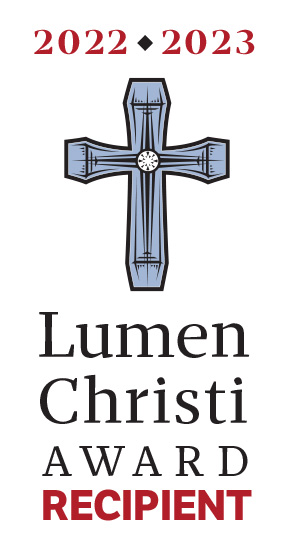
Read Matthew 25:42-44. It is a spiritual eye exam. It is meant to determine how well we see the world and its obvious suffering.
The hungry. The thirsty.
You don’t have to look hard.
The stranger. The naked.
You don’t even have to go out of your way.
The ill. The imprisoned.
They are hidden in plain sight, within the span of our reach, just a heartbeat away.
It is hard not to see them, really. It takes habitual indifference and a host of willful distractions to pass on by. Because our eyes are connected to our hearts, when we pass on by our hearts skip a beat. And God, whose intention always seeks to marry the heart that is ready, well, God’s heart skips a beat too. And our capacity to be daughters and sons of God is diminished. An outbreak of love is stymied.
We need examples. We need someone who has aced Matthew 25, someone who has opened their eyes, engaged their heart, partnered with God’s Divine Intention and done the next right thing—the wonderful thing that love intends.
Such a person would be luminous. They would cast light on what it means to be fully human. They would be part of the ongoing revelation of Christ in the world. They would do what Jesus would do in the face of suffering today and would show us what we can do.
Jean Fedigan is such a person. She is a Lumen Christi.
Catholic Extension Society is honored to name Jean Fedigan as our 2022-2023 Lumen Christi Award recipient.
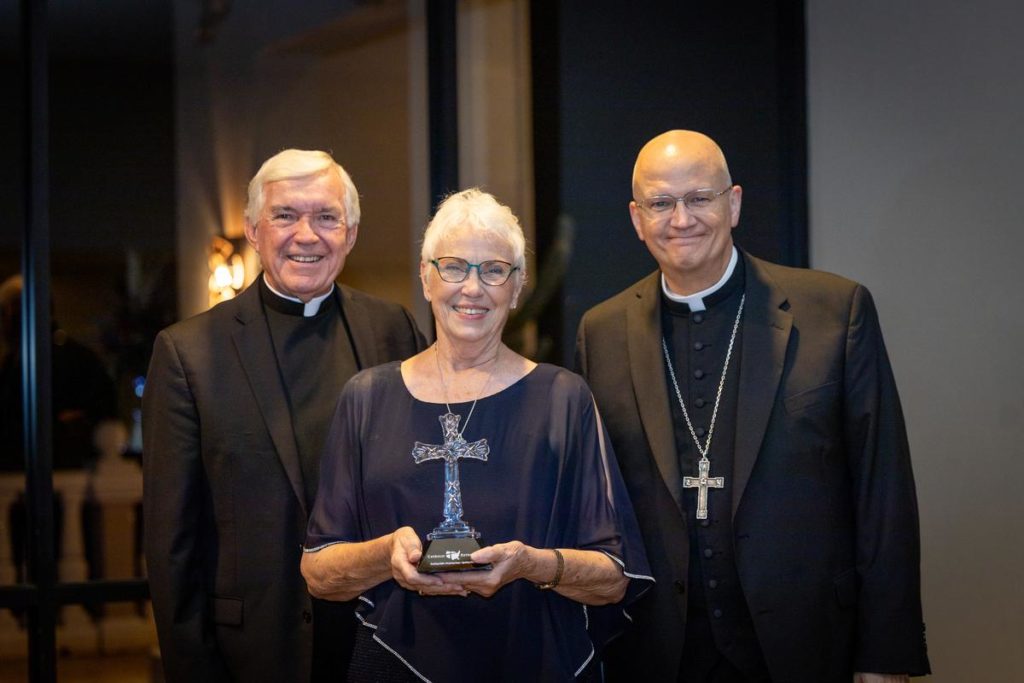
This award is Catholic Extension Society’s highest honor, and it is given to people who radiate and reveal the light of Christ present in the communities where they serve.
Learning to see
Fedigan says that her faith is an ongoing conversion and that the “Gospel rolls forward.” She didn’t come to see her path all at once, nor did she come to see it all on her own. We are all apprenticed by others over time.
For Fedigan, her way forward began with a parish friendship. Sister José Hobday, a Franciscan nun at Our Mother of Sorrows Catholic Church in Tucson, Arizona was her co-teacher in the parish’s “Just Faith” series. Sister José was a Native American who worked with Cesar Chavez and Dorothy Day. She taught Fedigan about the marginalized and how to reach out to the poor. She also taught her how to drum the “Holy, Holy, Holy.” They read Scripture together on Friday nights and became fast friends during Sister José’s battle with breast cancer.
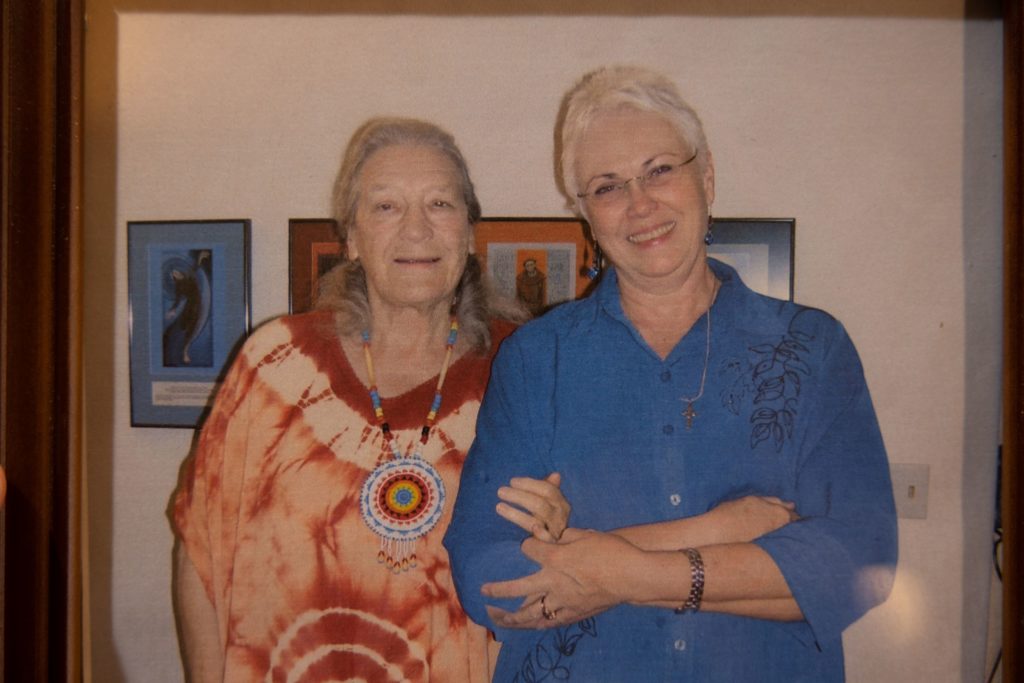
When Sister José passed away in 2009, Fedigan was devastated. She had no idea how to roll the Gospel forward. During a trip to Lourdes, France, she was profoundly moved by the spirit of love and service displayed by the volunteers and how the most needy pilgrims were always placed first in line and heart.
Fedigan returned from Lourdes and did the next right thing. She started with the hungry. They were in plain sight. As members of the Soup Brigade, she and Franciscan Brother David Brewer distributed soup to Tucson’s homeless and most marginalized.
During the winter months, Brother Brewer operated a men’s shelter. When Fedigan asked him where the women went, he said that they could not take them in, so the women were sent away. This was not OK with Fedigan. Sometimes God marries our hearts in an outbreak of outrage.
The Gospel rolls forward
Fedigan found a small Assembly of God church willing to offer space from Thanksgiving to Easter, during the winter months. She went to her pastor, Msgr. Tom Cahalane, and asked if she could speak at all of the Masses to ask for volunteers. Twenty-two people signed up. It was a mini-Lourdes.
Each night, Fedigan and her volunteers would push the seats to the walls and open the doors. When they first started, they had no idea if anyone would show up. But there they were, homeless women hiding in plain sight. They would come from the streets and kind of just appear out of the darkness.
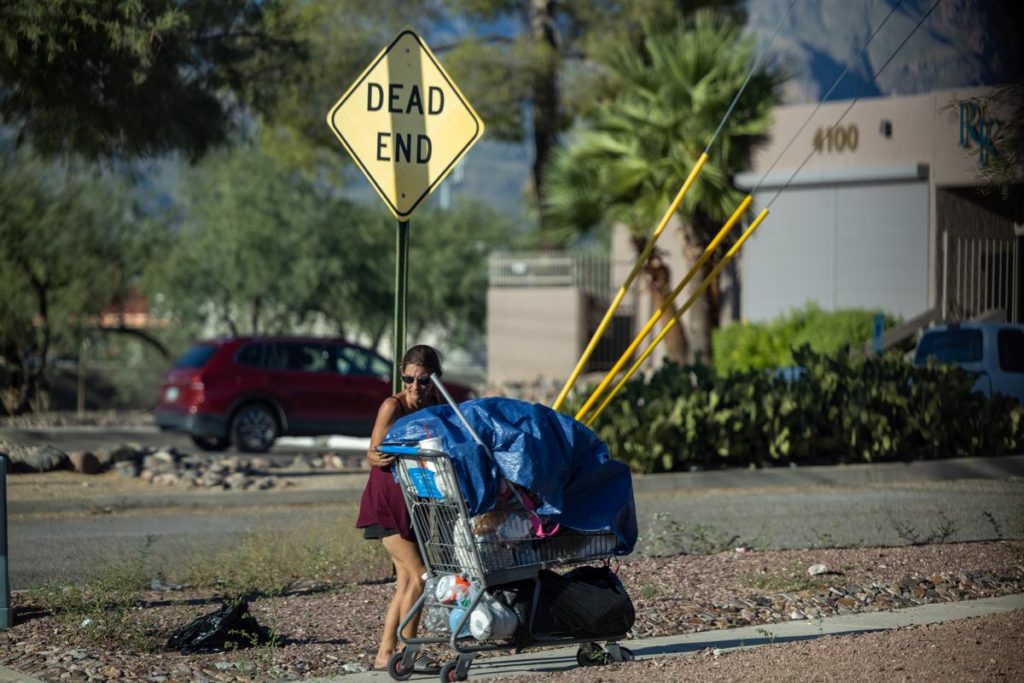
Fedigan and her volunteers did this for three winters. But they had to find a more permanent space that could extend both the hours and scope of services of their ministry, the Sister José Women’s Center.
A donor helped them rent a house. It was small—only 750 square feet. The house slept 11 women on the inside and two on the porch. It had a tiny kitchen, two bathrooms and one shower. This tiny house was the center’s home for the next five years.
Fedigan would come from her day job as the chief nursing officer at the University of Arizona Physicians Healthcare Hospital, then spend the night sleeping on the floor with the women. Pope Francis expressed his deep desire that pastoral workers “get the smell of the sheep” whom they serve by living among them. This is Jean Fedigan. Lumen Christi.
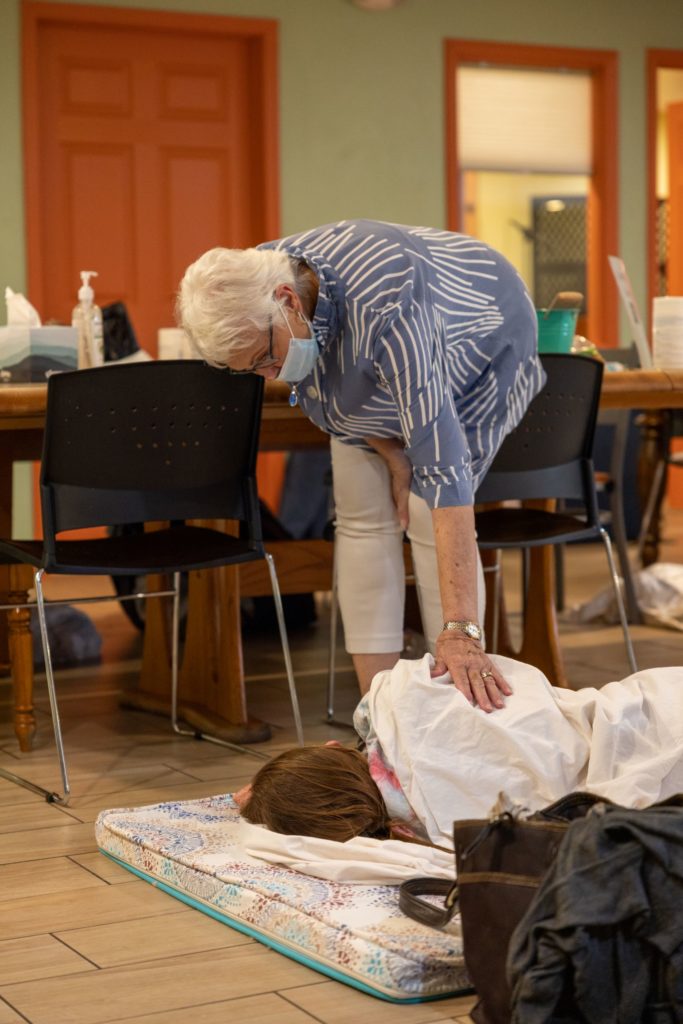
There are some things you can’t make up, horrible things, things you only learn by firsthand experience from those who suffer.
Fedigan learned that all of the women who came to the center were utterly exhausted from moving constantly during the day. This made them more of a target for predators. They carried all of their possessions in trash bags and were robbed repeatedly of their shoes, clothes, identification, their pictures and other tenuous, priceless connections to whom they were before.
Fedigan learned that almost all of the women had been trafficked, from those in their late teens to those in their 70s. Many had been raped. Almost all of them suffered from mental illness and crippling medical challenges. The streets stole their sanity, their self-respect, their human dignity. When they woke up in the morning, their first thought was, “What do I do to survive today?”
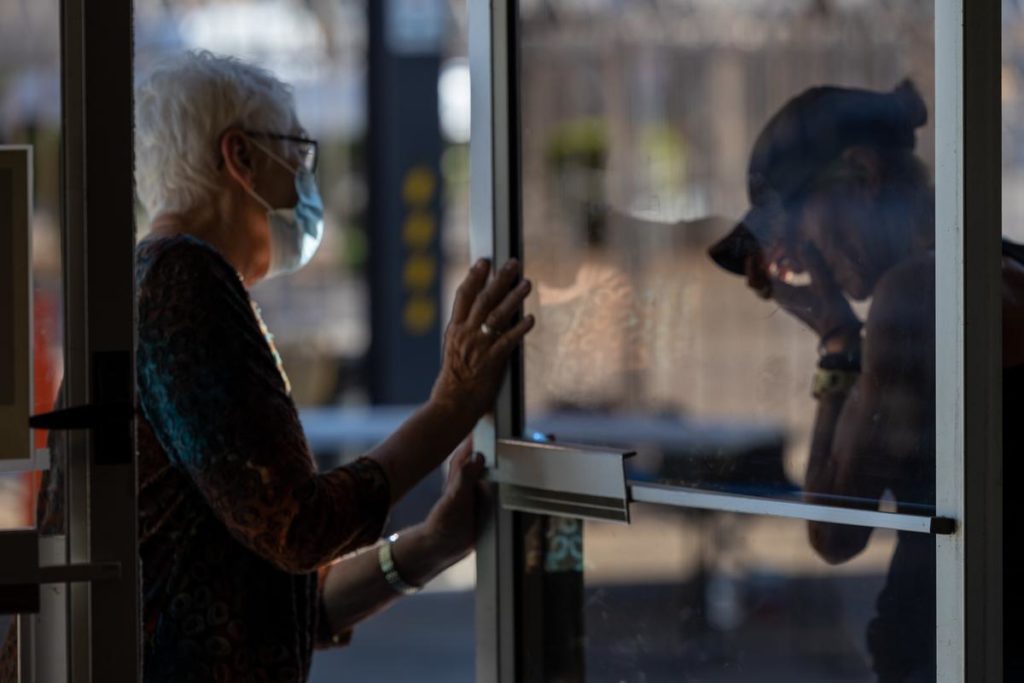
They hid in drainage tunnels, underpasses, alleys and even the Arizona desert. They had no forwarding address or contact information that a potential employer, family member or caregiver could use to connect with them. They were hungry, thirsty, ill, imprisoned and made strange to all who passed on by.
‘I think I am losing my mind’
Fedigan tells a story about a woman named Lisa who left the center at 2 a.m. and came back at 6:30 a.m. completely naked. “I think I am losing my mind,” Lisa told her. It was January.
Fedigan walked Lisa into the house and said, “Ladies, may I please get some clothes for Lisa?” As she described it, “They all jumped up and grabbed something out of our little closet. Every one of them said, ‘You’re safe here. I’ve been in your spot. Let me help you put your socks on. Let me put a shirt on you. You’re fine here. Jean will take care of you. This is the one place you’re safe.’”
Fedigan and her volunteers fell in love with the women. How could they not? They really saw them, and not just their maladies. So often the poor are stripped of their identity and turned into an anonymous noun. They are not people with a history and a name anymore. This is the worst affliction. Being seen as people is what they need the most.
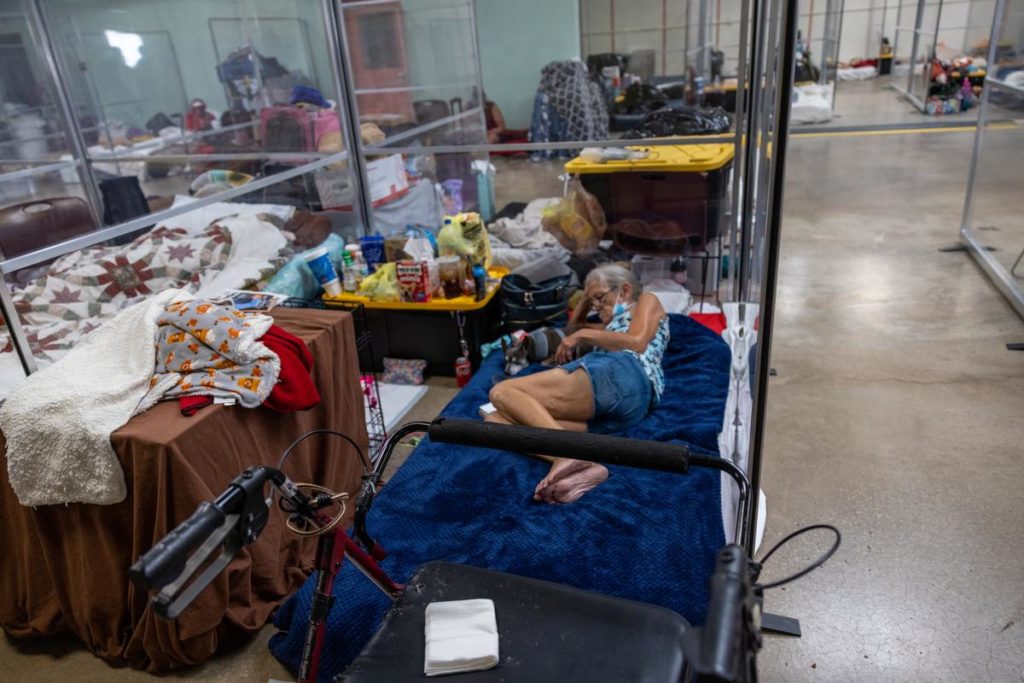
There was Lisa who was naked. There was Grannie Tieneshia who was forced to the streets by rising rent she could no longer afford. There was Tammy who loved to read the Bible until someone stole her copy. There was Joanne who was dragged from a tunnel and had the skin torn from her back.
They were people, not problems. And when you see people—really see them—you fall in love. We act as Jesus would. He is there in our midst. The Divine Intention marries our hearts. An outbreak of love happens and God is present. Fedigan and her volunteers pass the Matthew 25 eye exam day in and day out. Lumen Christi.
A light cannot be hidden under a bushel. Word spread, and soon 60 women a day were approaching the door. Volunteers from other churches and faiths joined in. Fedigan raised more funds and purchased a 25,000-square-foot facility, which is the current home of the Sister José Women’s Center.
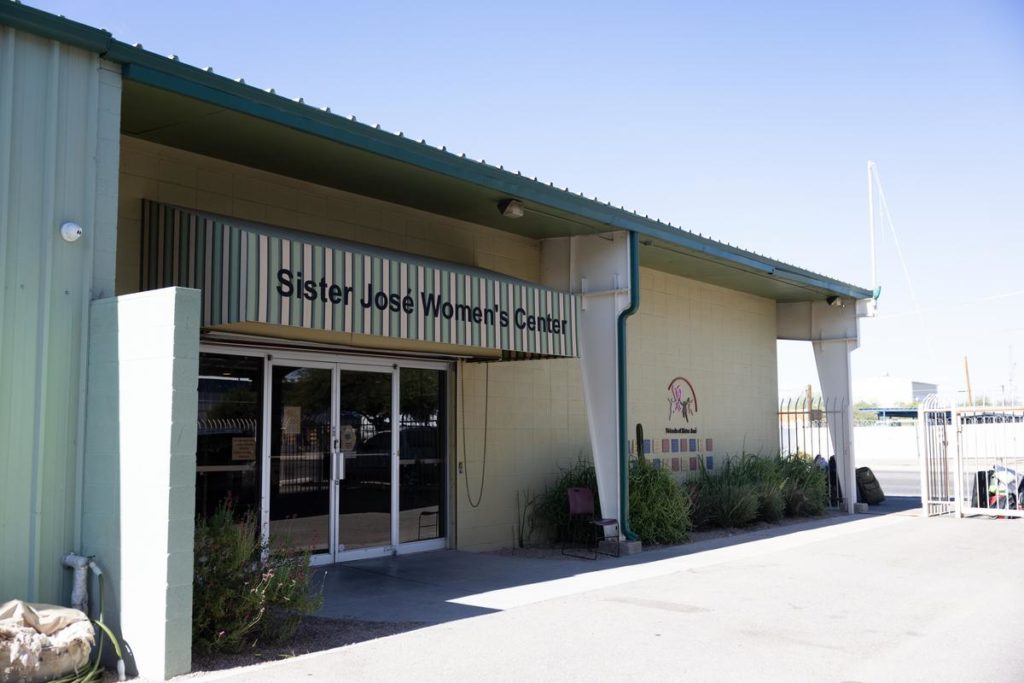
Every morning at 7:30, Fedigan opens the center’s gates. She says, “Good morning, ladies! We love you and are so glad you are here with us. Now, before we go in for breakfast, please give me any weapons you have.” The women have to protect themselves after all. One woman recently handed over a hatchet, which Fedigan returned to her after breakfast.
The Sister José Women’s Center is a low-barrier facility, that is, nothing prevents women from entering. No ID is required. No judgment is rendered. No one is unwelcome. If you need help, you are in.
The women line up for a breakfast of oatmeal, hard-boiled eggs, bagels and fruit. Sometimes there are doughnuts. Each morning more than 80 women are in line. The most infirmed and stricken are always served first. Just like in Lourdes.
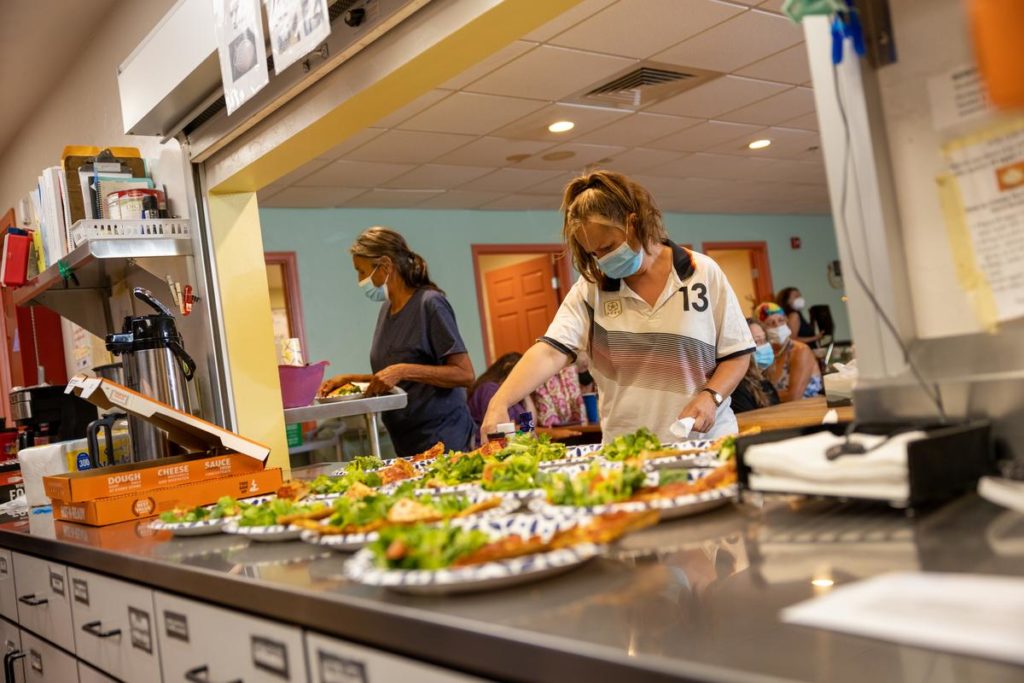
In the morning women can come in and get breakfast, take a shower or do laundry. They rest and they are offered help with any of their needs, from clothing to counseling to job search assistance. They use the center’s address, email and phone number as their contact information. It is a lifeline back to normal.
Even their dogs are welcome. Many of the women have dogs—their best friend, their comfort, their alarm, their constant protection. The dogs sleep next to the women at the center.
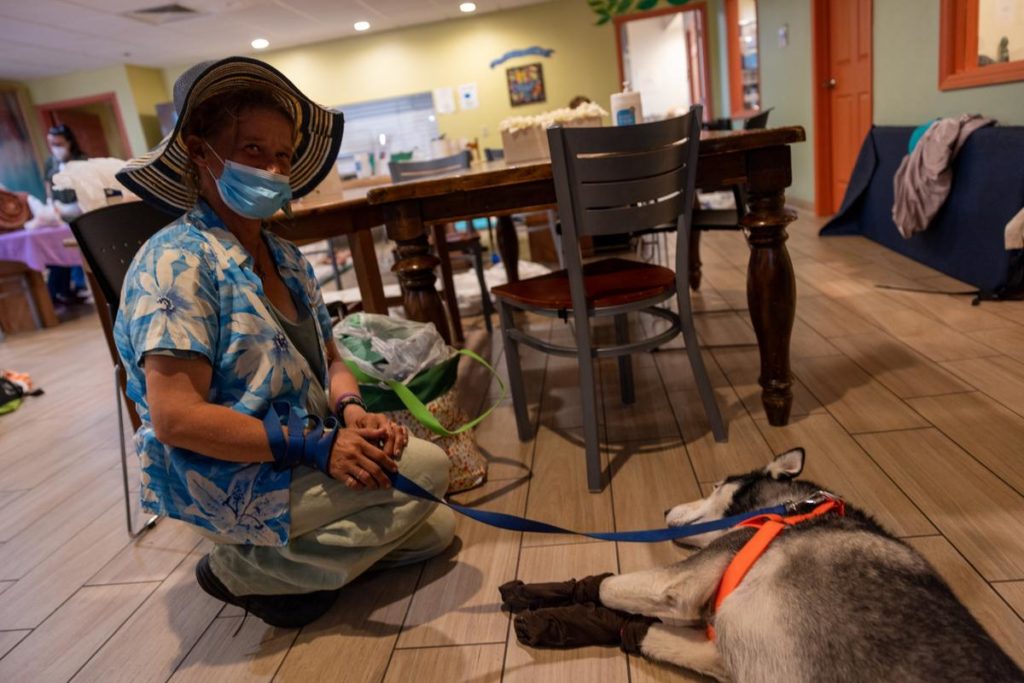
During the day women knit booties for the dogs’ paws, protection against the burning Tucson streets. The dogs are fed, watered and cared for just like their owners. Fedigan’s veterinarian thinks she has 15 dogs.
Being called by name
Fedigan calls the women by name, embraces them and hugs them. “Are you doing OK? Are you all right?” she asks. Some women don’t come into the center. They stay just outside, fearful, skittish and unsure. Fedigan doesn’t rush things. The women decide what they need and when they need it. One woman took two years before she entered the center.
During the day, the women come inside to escape the searing Tucson temperatures, which regularly climb to triple digits. A cooling mist sprays from the solar panels in the courtyard. The women flop onto mats. There is counseling, COVID-19 testing, check-ins. There is ointment for a back flayed of skin. Help with a resume. Help for those struggling through a high noon nightmare. Anything and everything.
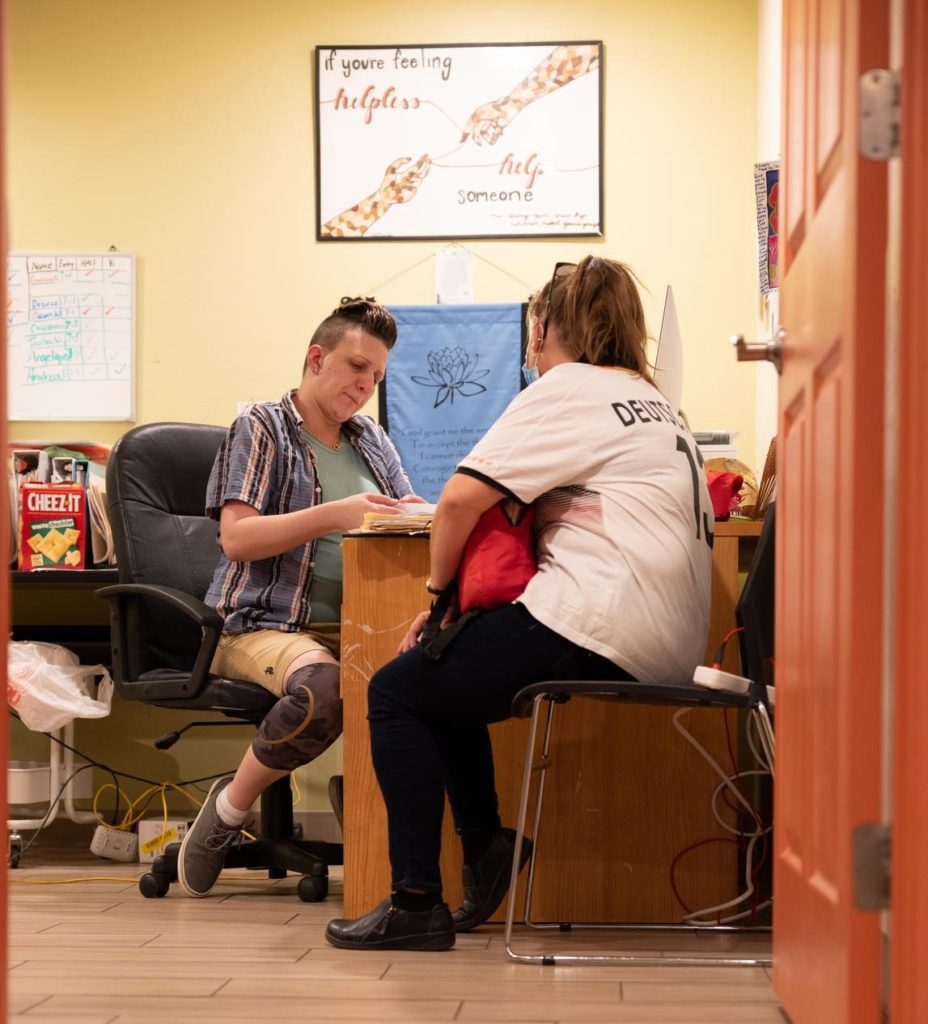
But mostly there is rest. Safety. Respect. For Fedigan, God is love. Having a center filled with love is doing God’s work. And God is present among all of these women. The latest revelation of Jesus in the world is at the center. You can feel it the moment you enter. God’s love falls like a cooling mist—ineffable, gentle, all-encompassing, never missing a beat.
Women can stay the night. The gates are locked at 5:30 p.m. to keep predators out. The only ones who can get the gate open are the Tucson police. They know Fedigan by name and frequently bring a terrified woman to the center’s door in the middle of the night. Fedigan always finds a place for whomever they bring in, whatever state they’re in.
And come the dawn, Fedigan and her volunteers get up and do it again. And again. For more than 14 years, for thousands. Last year the center provided 7,121 overnight stays. More than 26,000 meals were served. The Gospel rolls forward.
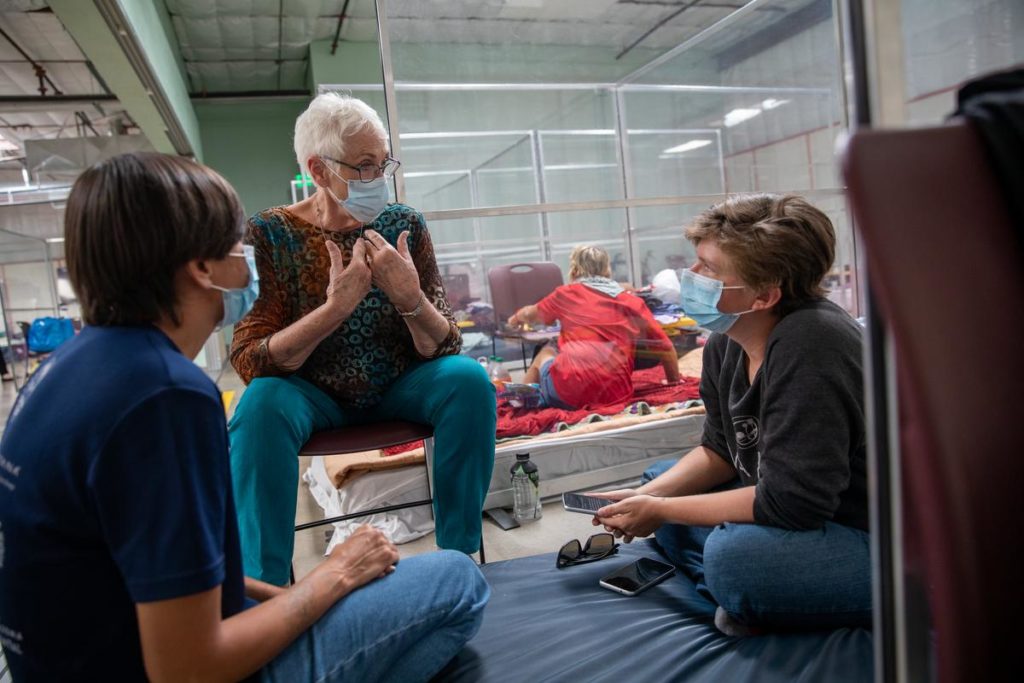
Fedigan said it best:
I’ve always believed that part of my faith is that I’m called to do the mission of Jesus. You feed the hungry. You clothe the naked. You help heal the sick. You do whatever it is that shows the women they are loved. I think that is what Jesus really calls us to do here—to love one another, to love our neighbors.”
Fedigan passes the Matthew 25 eye test with flying colors. She sees the suffering hidden in plain sight. She sees Lisa, Grannie Tieneshia, Tammy and Joanne—the women, not their maladies. She sees Jesus and lives the way He would, her heart married by the Divine Intention. She sees the wonderful things that love intends.
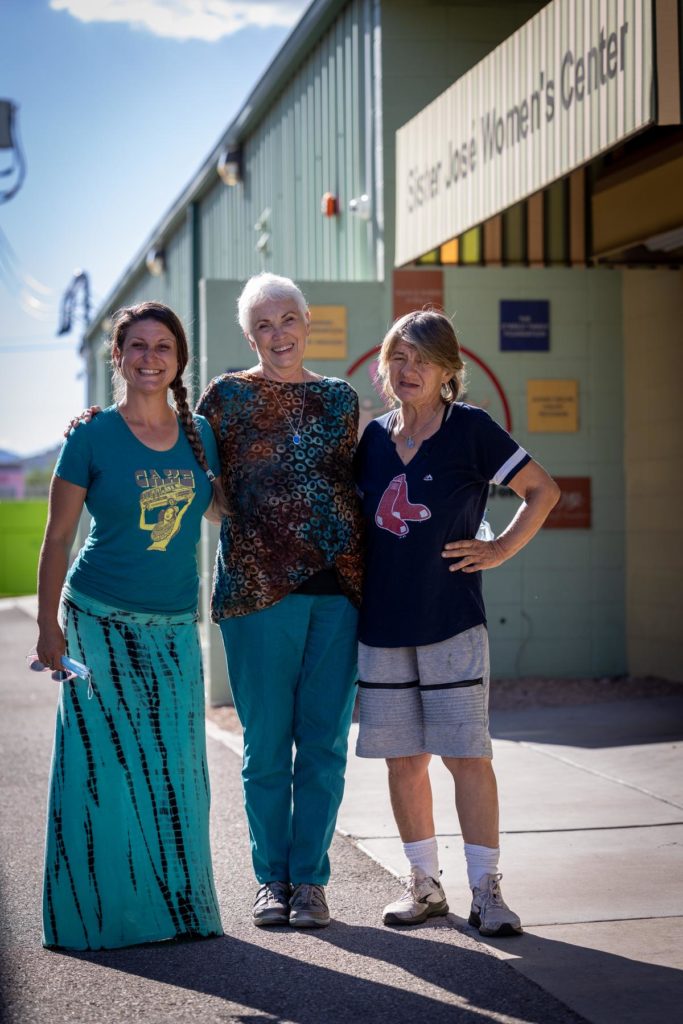
And she helps us see what we can do. She illuminates our capacity as daughters and sons of God. She is a Lumen Christi and helps us see that we can be one too.
As our Lumen Christi Award recipient, Fedigan will receive $50,000 to support her ministry at the center.
Please support Catholic Extension Society to help us strengthen ministries and the work of inspiring Catholic faith leaders like Jean Fedigan.


